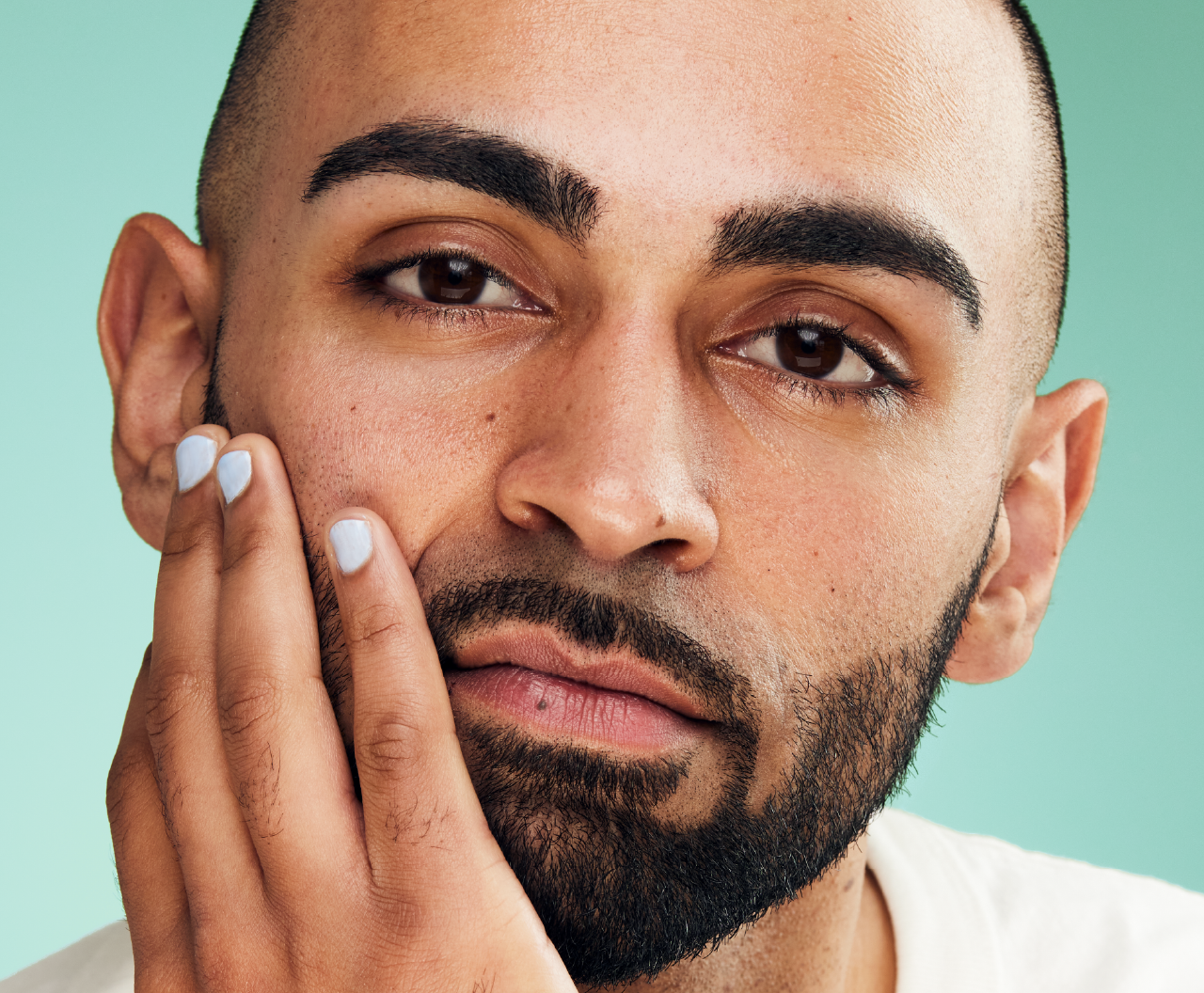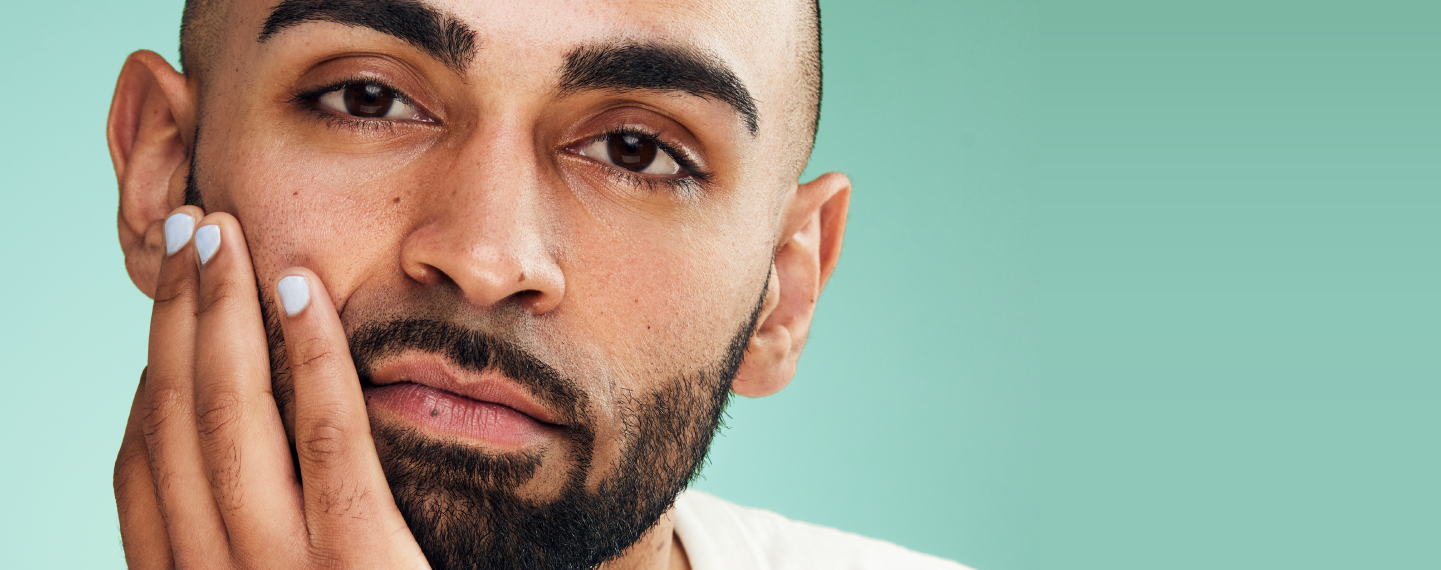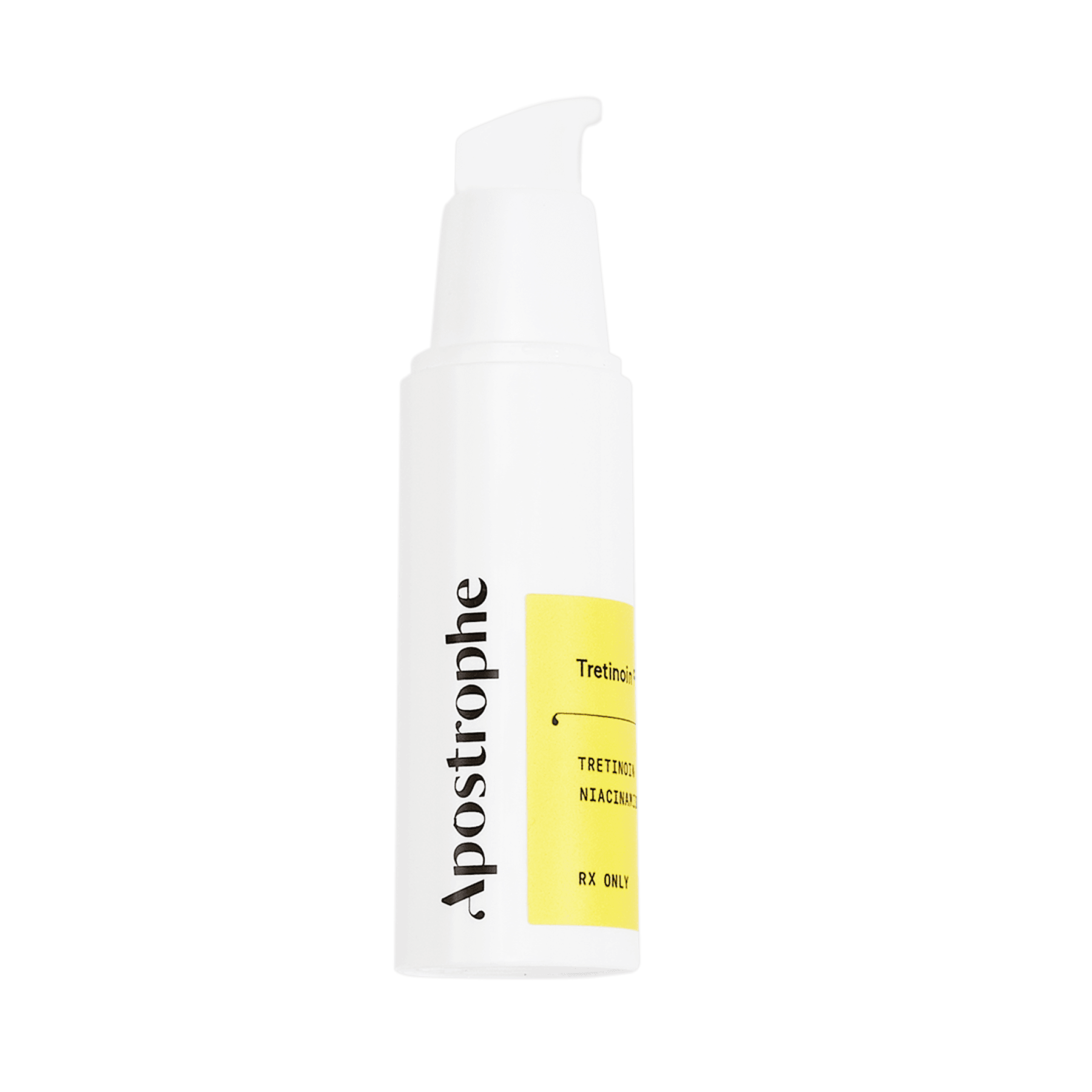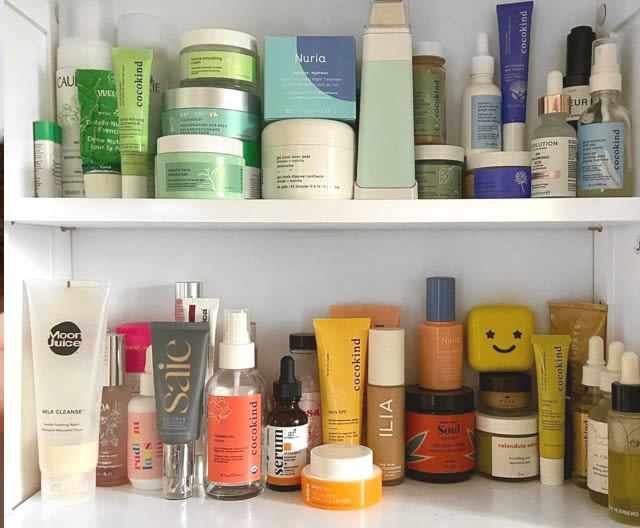General
Testosterone & Acne: Can Hormones Cause Breakouts?


SHARE
General
Testosterone & Acne: Can Hormones Cause Breakouts?
Medically reviewed by Mary Lucas, RN
Written by Apostrophe Team
Last updated 2/1/2023
As a man, testosterone plays a vital role in keeping you healthy. It’s responsible for regulating your sex drive, maintaining your muscle mass and strength, stimulating sperm production, and keeping your bones strong and healthy.
Testosterone may also play a key part in keeping you mentally healthy by helping to manage and regulate your mood.
Unfortunately, for many people, testosterone can also play a role in the development of acne that affects your face and body.
Below, we’ve explained how hormones like testosterone can affect your skin and potentially contribute to acne breakouts. We’ve also explained what you can do to control acne if you’re prone to whiteheads, blackheads and other types of pimples.
Does Testosterone Cause Acne?
Acne is a very common condition. In fact, it’s the most common skin condition in the United States, affecting up to 50 million Americans every year.
Despite its reputation as a condition that primarily affects teens and young adults, many people develop acne into their 20s, 30s, 40s and even fifties. This type of acne is known as “adult-onset acne” and while it is more common in adult women, it does affect men, too.
In a 2019 study on the relationship between androgens and acne involving over 300 subjects, 40 percent of whom were male, researchers concluded that testosterone levels were one of the markers of acne severity.
Another 2019 study on transgender men who were receiving testosterone as part of virilization therapy noted increased sebum and acne incidence that correlated with increasing testosterone levels. These findings, according to the authors, are consistent with multiple other studies showing that “testosterone therapy increases the development of acne.”
There’s no single cause of acne. Instead, a variety of different factors can contribute to acne breakouts.
One of these factors is sebum.
What Is Sebum?
Sebum is a type of natural skin oil that’s produced by your body’s sebaceous glands.
To explain testosterone’s relationship to acne, we first need to cover how sebum and other factors can contribute to the development of whiteheads, blackheads and other acne lesions.
Acne develops when the hair follicles in your skin become blocked. Hair follicles are found all over your body, from your scalp to your face, back, arms and elsewhere.
Hair follicles contain small, oil-producing glands called sebaceous glands. These glands are responsible for producing sebum — an oily, waxy substance that plays a key role in keeping your skin healthy and protecting it from bacteria.
How Does Sebum Create Acne?
Sebum is vital for maintaining your skin’s health. However, over time, excess sebum, along with other substances such as dead skin cells, can collect inside your hair follicles, causing them to become blocked.
These blocked hair follicles then develop into whiteheads, blackheads and — if they’re inflamed and infected �— a painful type of acne called cystic acne.
Where Does Testosterone Come into Play?
Although testosterone doesn’t directly cause acne, research shows that androgenic hormones like testosterone play a role in stimulating your body’s production of sebum, meaning you may be more prone to developing acne when your testosterone levels are high.
Testosterone levels increase suddenly and dramatically during puberty, which could be one of several reasons why acne is common for adolescents. However, it’s also common for acne to continue well into someone’s 20s, 30s, 40s, and beyond for some people.
How to Manage and Treat Acne
Unfortunately, if it’s testosterone that’s increasing your sebum production and making you more susceptible to acne breakouts, there’s not much you can really do to stop it.
Luckily, there are several ways to manage and treat acne, from topical creams that kill bacteria and prevent blocked hair follicles, to changes in your use of supplements and medications that affect testosterone levels. Try the following tactics:
Take good care of your skin. Small things, such as using a non-abrasive cleanser or avoiding picking, popping, or squeezing pimples, can help you to reduce the severity of acne breakouts and avoid developing painful acne. The American Academy of Dermatology’s list of tips for managing acne shares several simple but effective tactics that you can put into practice to reduce acne and keep your skin in good condition.
Consider prescription topical creams, such as tretinoin. Tretinoin is a topical acne treatment that works by speeding up the turnover of old skin cells. This can help to prevent clogged hair follicles and reduce the severity of acne breakouts. Tretinoin is a prescription medication, meaning you’ll need to talk to a healthcare professional before you can use it. We’ve explained more about how it works, its side effects and more in our full guide to tretinoin.

PRESCRIPTION TRETINOIN
Target acne, dark spots, and signs of aging with this science-backed ingredient.
For severe acne, consider talking to a healthcare professional about isotretinoin. Isotretinoin, previously sold under the brand name Accutane®, is a prescription acne treatment. It’s very effective, but is linked to a range of side effects. If you have severe or persistent acne that doesn’t seem to respond to other treatments, it may be worth talking to your healthcare provider about using isotretinoin. Our guide to isotretinoin and tretinoin explains the differences between these two treatments in more detail.
For inflammatory acne, talk to a healthcare professional about antibiotics. Red, painful inflammatory acne can develop when certain bacteria, such as P. acnes, grows inside a clogged hair follicle. Since this type of acne is worsened by bacteria, antibiotics are often the most effective treatment. Our guide to prescription acne medications lists oral and topical antibiotics that are commonly prescribed to treat inflamed, infected acne.
For body acne, consider using a topical anti-acne body wash or check in with a provider for prescription body acne treatment. Some body washes contain science-backed ingredients such as benzoyl peroxide, which may help to treat certain forms of acne.
Avoid or limit use of anabolic steroids and other drugs that increase testosterone levels. Certain drugs, such as testosterone, anabolic steroids and testosterone-boosting supplements can raise your testosterone level beyond the normal range. This may increase your risk of developing acne.
If you’re prescribed testosterone for testosterone replacement therapy (TRT), or use any medications that may affect your testosterone levels, and notice more acne than normal, talk to your healthcare provider. They may recommend adjusting your dosage or using other medications to treat and prevent acne.
In Conclusion
Testosterone increases the amount of sebum produced in your skin. This, in turn, could increase your risk of developing blocked hair follicles and experiencing acne breakouts.
If you’re prone to acne and think a hormonal factor could be the cause, it’s best to talk to your healthcare provider about it. Based on the severity of your acne, they may recommend using medication or making changes to your habits to help keep acne at bay.
Learn More About Treating Acne
Worried about acne? You’re not alone. Acne affects tens of millions of people every year in the United States alone, including lots of adults. Our guide to prescription acne medications goes into more detail about the treatments that are available, how they work and more.
Shop this post

Tretinoin
Like what you just read? Sign up for our email list to get the scoop on skincare science delivered straight to your inbox.

General
What is milia?
What is milia? Today, we’re jumping into one type of bump that you may have heard about most commonly in infants — milia.
Read More
General
Best moisturizer for acne-prone skin
If you have combination acne-prone skin, figuring out which moisturizer is best for your skin might be tough. In this guide, we break down the best moisturizer for combination, acne-prone skin.
Read More
General
How to build a face care routine
As you get into skincare, it might seem overwhelming, especially trying to figure out the order you're supposed to apply products in. Below, we detail how to build a face care routine for your skin!
Read More